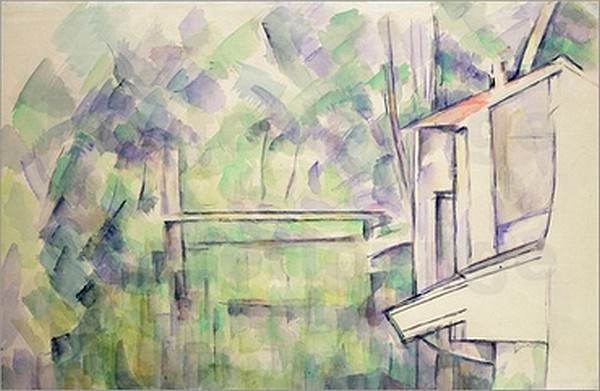To be read in Winter
- Details


Back then, syphilis couldn’t be cured and the treatments were so aggressive that they were often more harmful to life’s quality than the illness itself. The syphilis progression was very different depending on the person; the symptoms could be hidden for years or become visible for everybody (in that case, social rejection should be added to suffering); Some periods were worse than others, it could cause physical damage or mental disorders, and most of sick people just lived five years after the illness revealed itself. It's easy to understand Schubert's angst who was 26 at that time; his composition rhythm decreased but he kept writing, even while he was in hospital. Funnily enough, one of his works from that time is nothing less than Die schöne Müllerin.
I've been writing on this blog for almost two years now and never before I did it about Die schöne Müllerin (first Schubert's song cycle, second one in the History after Beethoven's An die ferne Geliebte, one of the most performed and absolutely gorgeous) so let me do the official introduction: Die schöne Müllerin is a twenty songs cycle, composed upon the poems by Wilhem Müller. The cycle tells the story of a young miller who leaves his house to see the world. One day, following a brook, reaches a mill and gets a job. He falls in love with the miller's daughter. Despite his efforts to captivate her, she prefers a hunter and the desperate young boy kills himself by jumping into the brook.
The poems of Die schöne Müllerin were published in 1820, in a collection named Sieben und siebzig Gedichte aus den hinterlassenen Papieren eines reisenden Waldhornisten I (Seventy-seven poems from the posthumous papers of a travelling horn-player I) with the subtitle Im winter zu lesen (To be read in Winter). They are twenty-three poems, with a prologue and an epilogue that distances us from the tragic story by means of irony; we are reminded that it's just poetry, not real life. One day (hopefully it won’t take me that long) I'll talk about Müller and his poems' origin, it is a curious story.
Schubert respected the poems' folk nature, writing strophic, simple (but refined) songs, describing the miller's youth so precisely that some singers refuse to sing the cycle when they become not that young. Schubert decided not to use the prologue and the epilogue, probably not to break the music's romantic atmosphere; experts’ views differ about Schubert’s reasons to take out three poems, it is suggested that he wanted the readers knew about the “müllerin” only through the young boy’s eyes. Sometimes the cycle has been performed with those missing poems recited; that’s the case, for instance, of the recording of Ian Bostridge and Graham Johnson with Dietrich Fischer-Dieskau as narrator.
Today we are listening to the first song of the cycle, Das Wandern, with a reference performer, Fritz Wunderlich. I suggest two versions, his second and his last recording, when he was 29 and later at 35; in the 1959 recording he's accompanied by Karl-Heinz Stolze and in the 1966, by Hubert Giesen. I hope you like them.
(recording 1959)
(recording 1966)
Das Wandern ist des Müllers Lust,
Das Wandern!
Das muß ein schlechter Müller sein,
Dem niemals fiel das Wandern ein,
Das Wandern.
Vom Wasser haben wir's gelernt,
Vom Wasser!
Das hat nicht Rast bei Tag und Nacht,
Ist stets auf Wanderschaft bedacht,
Das Wasser.
Das sehn wir auch den Rädern ab,
Den Rädern!
Die gar nicht gerne stille stehn,
Die sich mein Tag nicht müde drehn,
Die Räder.
Die Steine selbst, so schwer sie sind,
Die Steine!
Sie tanzen mit den muntern Reihn
Und wollen gar noch schneller sein,
Die Steine.
O Wandern, Wandern, meine Lust,
O Wandern!
Herr Meister und Frau Meisterin,
Laßt mich in Frieden weiterziehn
Und wandern.
Wandering is the miller's joy,
Wandering!
He must be a miserable miller,
Who never likes to wander.
Wandering!
We've learned this from the water,
From the water!
It does not rest by day or night,
It's always thinking of its journey,
The water.
We see this also with the wheels,
With the wheels!
They don't like to stand still,
And turn all day without tiring.
With the wheels.
The stones themselves, heavy though they are,
The stones!
They join in the cheerful dance,
And want to go yet faster.
The stones!
Oh, wandering, wandering, my joy,
Oh, wandering!
Oh, Master and Mistress,
Let me continue in peace,
And wander!













Comments powered by CComment